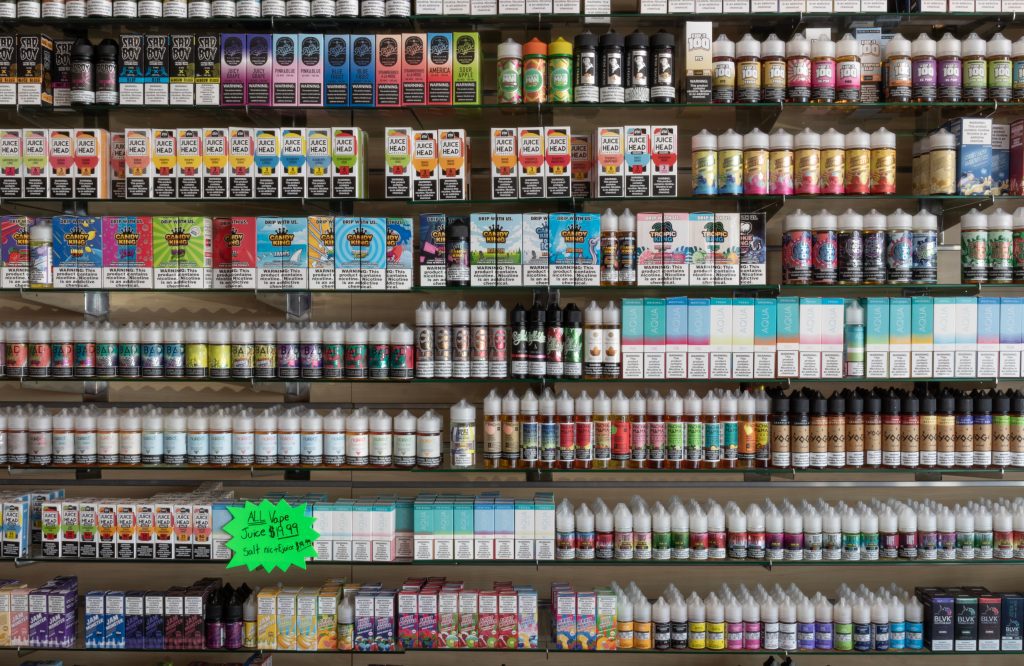
Louisiana passed a law that raised taxes on nicotine e-liquids. However, the new rules could result in most vape products being taken off the shelves.
The legislation, Act 414 by Rep. Paul Hollis, started out as a bill to increase the tax on vapes, with Hollis saying he wanted to discourage their use. But it quickly morphed into a broader law that dramatically scales back what vapes can be sold, after wholesalers, major tobacco companies and legislators concerned with youth use got involved.
The law Edwards signed triples the tax on vape liquid from 5 cents per milliliter to 15 cents per milliliter and earmarks the revenue the tax will generate for pay raises for state troopers, according to NOLA.com.
But the bigger impacts have to do with a new registry pushed by the major tobacco companies and large wholesalers.
The law, which goes into effect in November, will require any vapes sold in Louisiana to be authorized by the U.S. Food and Drug Administration to be marketed in the U.S.
Some other products could be sold if litigation is ongoing, but the state Office of Alcohol and Tobacco Control will be able to fine retailers for unapproved products.
The new rules allow for only a handful of companies to sell vaping products in Louisiana, including R.J. Reynolds and Altria, major tobacco companies that sell Vuse and NJoy products, respectively.
Both companies lobbied significantly on changes to the bill, including the registry.
Effectively, the law could ban the vast majority of flavored vapes being sold in Louisiana. A wholesaler testified in a committee hearing that the list would tamp down on popular disposable vapes such as EscoBars, Puff Bars and Elf Bars, which have drawn the ire of regulators and lawmakers across the country.
The FDA has cracked down on Elf Bars recently, telling retailers to stop selling them and halting imports.
Hollis said Altria and Reynolds, along with wholesalers who argued the state was missing out on tax revenue by allowing retailers to bypass it and buy products from vape manufacturers, were among those who negotiated the final law.
The new law now requires products to go through wholesalers.
The law could also mean a de facto ban on flavored vapes because the FDA has not approved any flavored products other than tobacco. Reynolds, with its top-selling Vuse brand, only sells tobacco and menthol-flavored products.
A Reynolds spokesperson said in a statement that “illegally marketed disposable” vapes, often imported from other countries, have “subpar regulatory oversight,” and that getting such products off the shelves will protect youth while allowing adult smokers options beyond combustible cigarettes.
“The creation of a marketing order registry, and the state tax increase which will fund it, will help the public and retailers in assessing the legitimacy of vapor products before hitting the store shelves,” the company said. “Reynolds also urges the FDA to put together a list of products that can be legally sold in the US.”
iMiracle, the maker of Elf Bars, said it was “concerned that the true objective of this law has been obscured from both the general public and Louisiana voters.”
“Louisiana legislators should take a careful look at who promoted and who benefits from this legislation, and whether they want to limit their adult constituents’ access to harm-reduction products,” a company spokesperson said, adding it is evaluating the law’s “applicability and legality.”
The state Office of Alcohol and Tobacco Control will be tasked with enforcing the new law by fining retailers who sell products not authorized by the FDA.
ATC chief Ernest Legier said he hasn’t yet had time to closely review which products will be allowed, but that industry representatives have suggested as much as 60 percent of the products currently on the shelves could be removed.

